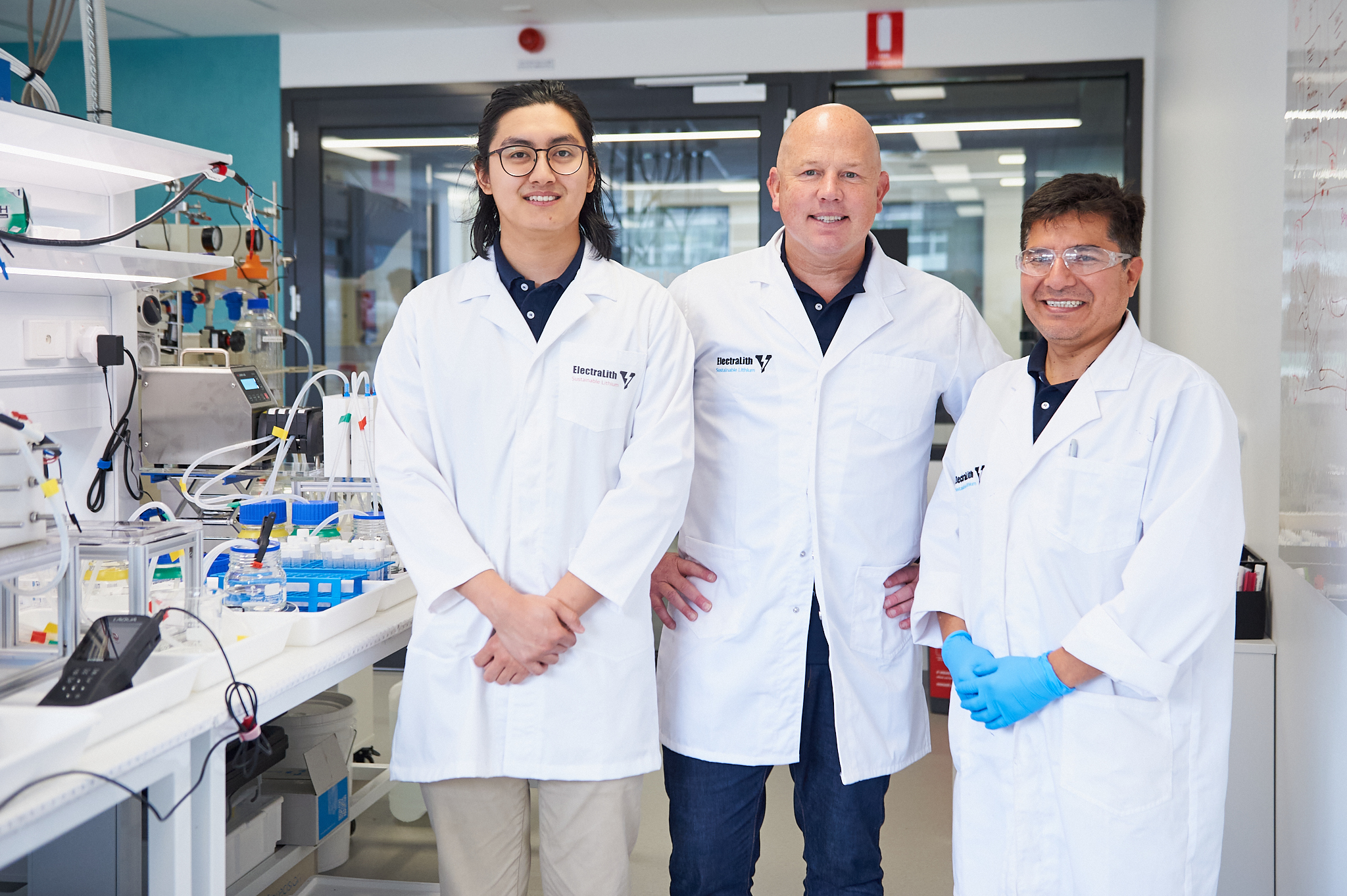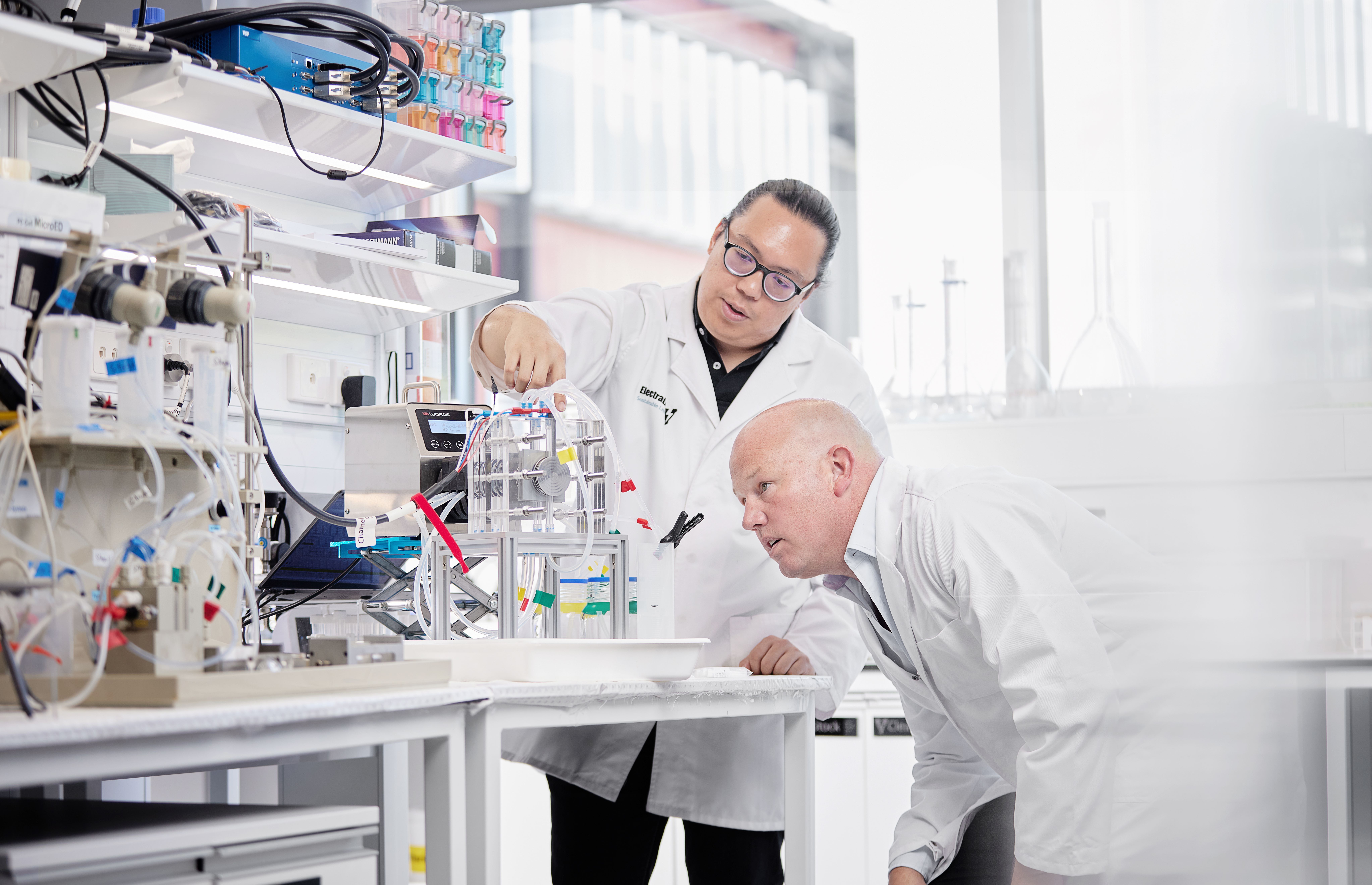INVESTMENT UPDATE ELECTRALITH
Breakthrough Victoria is investing $2 million in ElectraLith, a Victorian company that is rapidly developing the cleanest, most versatile and most cost-effective process to extract and refine lithium, the fundamental element of a sustainable future.
THE INVESTMENT
Investment Type | Venture Capital |
Investment Vehicle | Preference Shares |
BV Investment | $2 million |
WHAT IS ELECTRALITH?
ElectraLith is a Victorian company at the forefront of the rapidly emerging and increasingly important lithium extraction and refining industry. The Company has developed a next generation lithium extraction and refining process that, unlike other Direct Lithium Extraction (DLE) methods, requires no water or chemicals and is fully scalable using modular, off-the-shelf equipment. Known as DLE-R, ElectraLith’s technology can be powered entirely by renewable energy, further positioning it as the most environmental and cost-efficient method to produce lithium, the fundamental element of a sustainable future.
THE PROBLEM
The global lithium market is projected to grow from $26 billion in 2025 to $37 billion by 2027. Despite this demand growth, the industry faces a significant supply gap due to the inefficiency of traditional mining methods (evaporation ponds and hard rock mining), which pose environmental challenges and limit access to a substantial portion of the world's lithium resources. For example, evaporation ponds require up to 2.2 million litres of water to produce just one ton of lithium over more than 18 months. Similarly, hard rock mining is carbon intensive and can create chemical waste and groundwater contamination.
Direct Lithium Extraction (DLE) is widely recognized as a promising solution to these challenges. As noted in the Goldman Sachs report (April 27, 2023), DLE offers a faster, more efficient, and environmentally sustainable method for lithium extraction. Notwithstanding these attributes, DLE continues to require water and chemicals, and also requires a further carbon intensive refining process. This refining process is often performed in countries such as China, adding furthest supply chain complexity.
THE SOLUTION
ElectraLith’s DLE-R process addresses these issues by offering a breakthrough one-step solution for lithium extraction and refining from any brine source using proprietary membrane technology initially developed at Monash University. Unlike other DLE methods, DLE-R requires no water or harmful chemicals and is fully scalable, using modular, off-the-shelf equipment. Additionally, the technology has the potential to be powered entirely by renewable energy, providing a significant cost advantage to lithium miners.
Breakthrough Victoria joins the Series A alongside a world-class investor syndicate comprising IP Group, Hostplus, Rio Tinto, Chevron Technology Ventures, Fathom Fund Vista Energy, Marathon Petroleum, In-Q-Tel and Monash University. The round was led by Australian deep tech investment fund Main Sequence.
ElectraLith’s Series A will support DLE-R ‘s rapid scaling and the deployment of three pilot plants within the next 24 months.
IMPACT FOR VICTORIA
The investment in ElectraLith is a testament to Victoria’s commitment to driving innovation and sustainability in the resources sector. By supporting the commercialisation of a next-generation technology that eliminates the need for water and harmful chemicals, that can run entirely on renewable energy, and that unlocks otherwise unviable resources, ElectraLith positions Victoria as a leader in the global transition to cleaner energy systems.
ElectraLith is currently based at Monash University’s Monash Innovation Labs and in the immediate vicinity of other BV portfolio companies Jupiter Ionics and Kite Magnetics. This adjacency allows synergistic deep-tech manufacturing knowledge-sharing in the ecosystem.
ElectraLith’s pilot plants will be manufactured in Victoria through a combination of internal and third party resources.
ElectraLith’s team is rapidly growing and today employs 14 permanent staff and a number interns from Monash University and the University of Melbourne. These roles span chemical engineering, mechanical engineering, materials science, electrochemistry and business administration.

